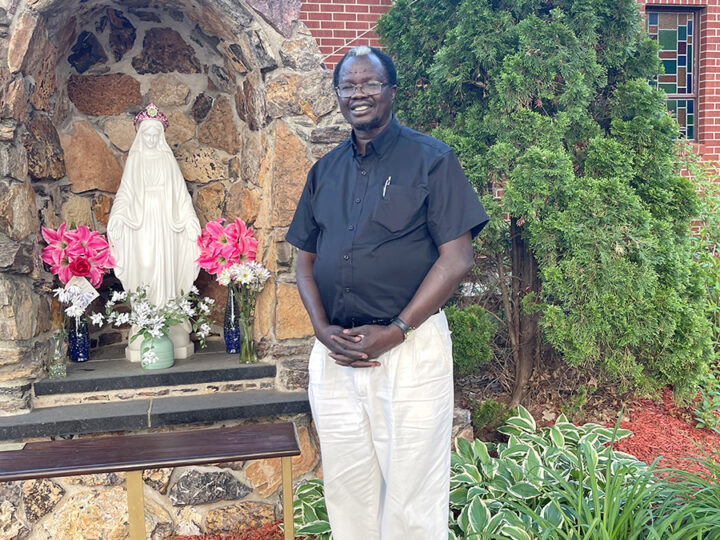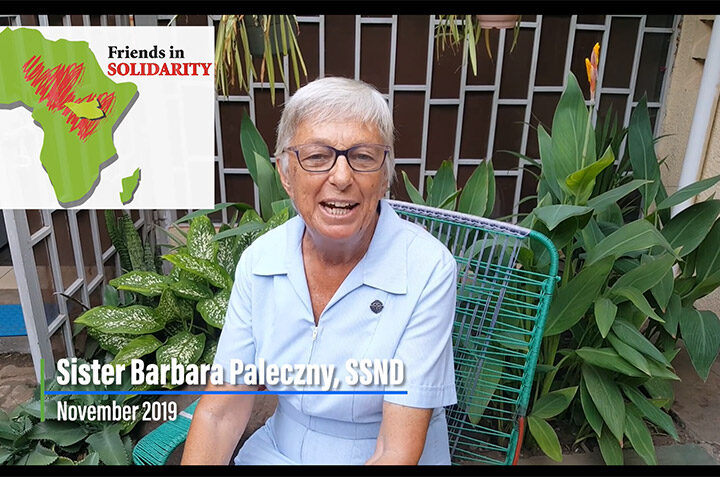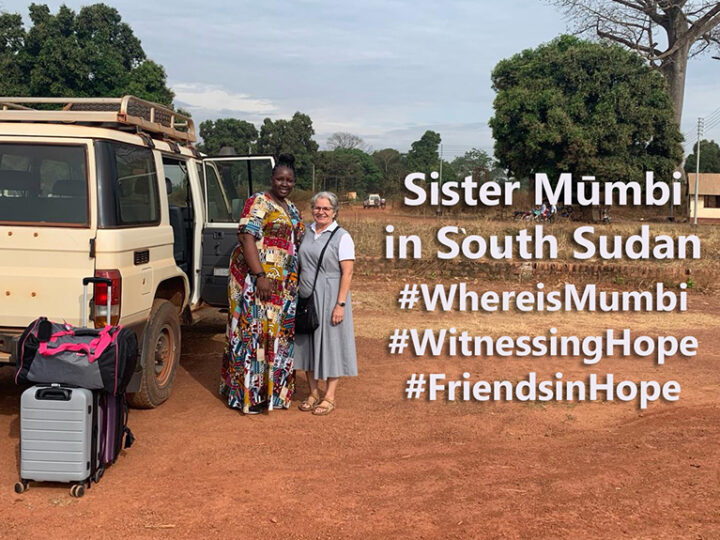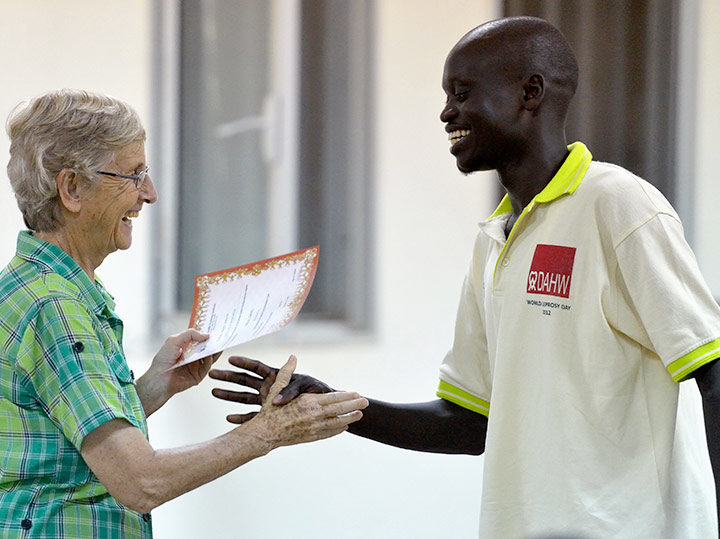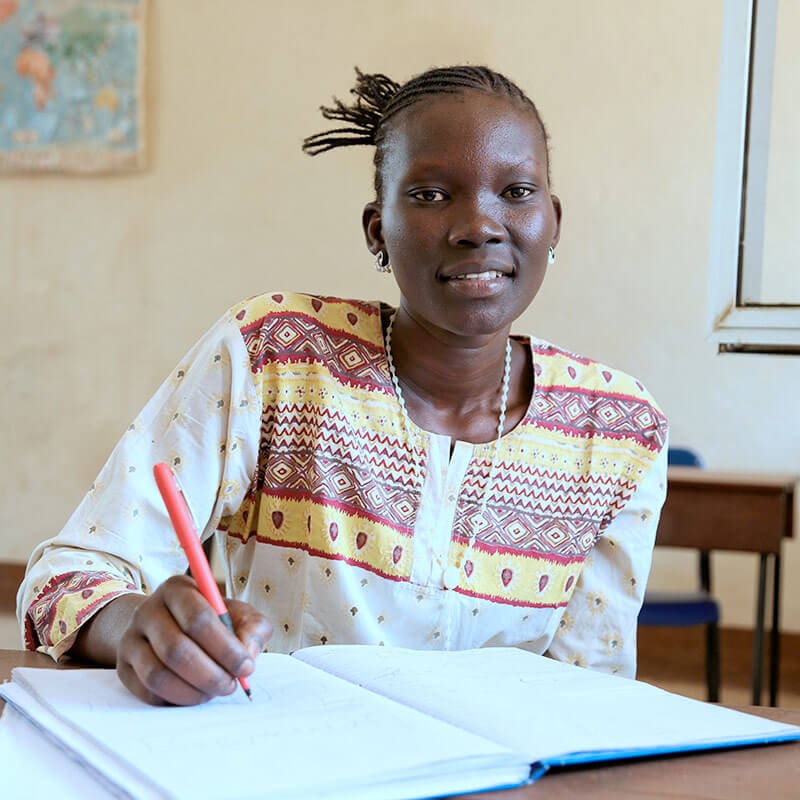
Margaret Namoyo, 24 years old, is a nursing student at Catholic Health Training Institute (CHTI) in Wau, South Sudan. Sister Joan visited with her last week and took this video:
Margaret is from Juba. She has three brothers and two sisters. As she narrates her story, she begins to cry, especially when she talks about her father. “I was no longer living with my parents because I had to live with my older, married sister to take care of her children. My father was not interested in raising me at all. His rule is that all boys must go to school and that girls are useless and of no meaning to him. He said that he did not have time for us because we would not benefit him in any way. We would just get married and leave the home.”
“At my sister’s home, I was not being treated like family. Instead, I was treated like a visitor, like a stranger… I did not know or understand what caring for another person means, and a lot of negativity grew inside me… As I grew older, it became tough to live with my sister’s family, and they no longer took care of me. I used to volunteer at the church, and [the church] sponsored my secondary education. They also sent me to CHTI to study, and so I have an agreement with them that I must work in a hospital in the Juba Diocese for two years before I can get any other employment. If I had not been sent to this institute, most likely I would already be married, having 10 children, living a miserable life.”
“Coming here has changed me greatly. When I came here to CHTI, I found that people lived in peace and cared for each other. If you had a problem, the other person would help you. They were strangers, yet were caring for me. People here take care of each other even if we are from different tribes. I am the only person from my tribe, yet I still have many friends from other communities. They call me “sister.” I visit their homes and we eat and laugh together. It is as if I have found a new family here.”
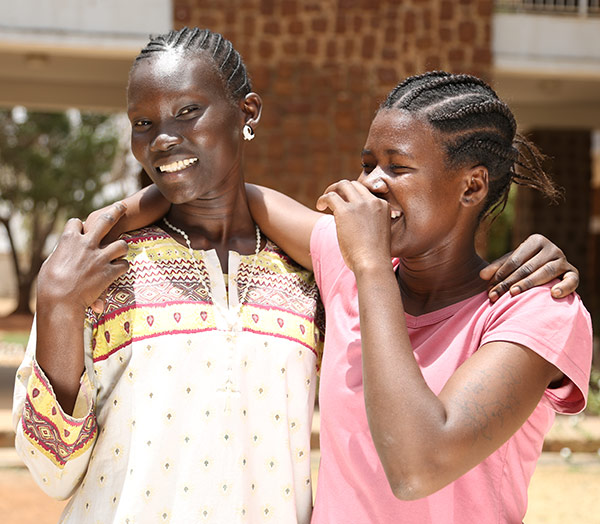
Margaret with her friend and fellow nursing student Rose Arual
Based on her performance, Margaret was chosen by the CHTI administration to act as one of the first aiders whose role is to attend to student medical emergencies, especially at night, before calling the clinical officer. First aiders are also supposed to make a follow up on the patient in case the case had been a serious hospital case.
“Now I KNOW that I am somebody, and even when I leave the institute, I can stand in confidence because I have changed, plus other people can also depend on me… I am now able to think about things deeper and different. I am now a changed human being. When I go back, I will show my father that if you educate a lady, she too can become someone. Even the one that you ignored can become important. I will do my best and prove to him that even a woman is a human being. ”
“By being here, I have learned so much. For example, I have learned that people all over South Sudan are really in need of medical help. I did not know that there is such a big problem with malnutrition. I now have the ability to help, especially because some things can be prevented if the people were educated and had the knowledge to prevent it. I could educate them through health talks, for example. I can change their situation, even if it is a small way. You know, I came with empty hands and know I will leave with my hands full.”
Your financial contribution will help cover costs of textbooks, tuition, and room and board for students like Margaret. Donate today
Story and photos by Nyokabi Kahura and Nicole Moran


